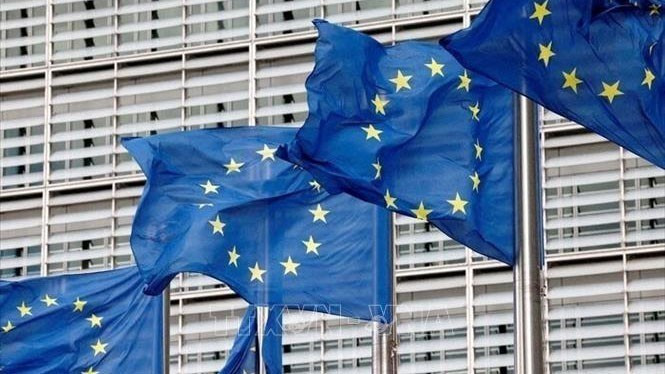Expanding the network of cooperation agreements with other countries makes an important contribution to helping the EU strengthen the supply chain, boost the economy, and solve many challenges that threaten to hinder the bloc's development.
After many years of stagnation, the FTA negotiation process between the EU and the Philippines was restarted.
European Commission trade commissioner Valdis Dombrovskis said negotiations for the FTA would officially restart at the end of 2024, opening up opportunities to bring the bilateral economic cooperation to a new level.
The signing of the FTA with the Philippines, a growing economy with about 115 million people in Asia, is expected to strengthen the EU's network of trade agreements.
In addition, the EU recently signed a joint declaration to elevate their relationship to a “strategic and comprehensive partnership” with Egypt, marking a new development step in the cooperation between the two sides.
Along with efforts to tighten connections with the Philippines and Egypt, the EU officially launched the negotiation process to deepen relations with Switzerland.
According to observers, the EU and Switzerland aim to readjust several major agreements within the 120 framework agreements between the two sides.
The two sides will amend agreements on free movement of persons, standards in industry, agriculture, air and land transport, and form new agreements on electricity and food safety.
European Commission President Ursula von der Leyen affirmed that the negotiation process is expected to be completed in 2024, becoming the first step for a new chapter in the relationship between the two sides.
Analysts say there are many reasons why the EU has recently accelerated the expansion of its network of cooperation agreements.
While the wounds caused by the COVID-19 pandemic had not yet healed, the EU faced a series of challenges from the energy crisis, inflation, and economic stagnation.
The European Central Bank (ECB) forecasts that the Eurozone's Gross Domestic Product (GDP) in 2024 will only increase by 0.6%. In that context, the EU’s decision to continue extending cooperation with other countries is an important key to maintaining its sustainable growth and strengthening its position in the international arena.
EU Commissioner for Trade Valdis Dombrovskis affirmed that trade agreements play a very important role in the bloc's economic security by supporting the job market, growth and innovation while helping the EU cope with geopolitical shock and reduce its dependence on external supply.
Currently, the EU has the largest network of trade agreements in the world, with a total of 74 countries, accounting for 44% of all EU trade.
According to the EC, these agreements help EU businesses maintain investment and business activities in the context when the global economy has been shaken due to increasing geopolitical challenges.
Besides, the green transformation ambition is pushing the EU's demand for raw materials to an unprecedentedly high level. Establishing partnerships with countries will help the bloc diversify its supply of important raw materials.
Many of the EU’s recently signed trade agreements have focused on this issue and brought positive results.
According to the EC, in the first five years after the EU-Canada Comprehensive Economic and Trade Agreement (CETA) took effect, EU imports of critical raw materials from Canada rose by 56%, compared to growth of only 25% of these materials from other sources.
In addition to being an important partner of the EU in Asia, the Philippines also possesses large reserves of important raw materials, such as nickel and copper. The Asian country is also the EU’s important partner of the bloc in green transformation.
The EU's recent efforts to strengthen international cooperation also help address many challenges threatening to hinder the bloc's development.
Analysts say that for the EU, Egypt plays a very important role, especially in the context of hot spots in the Middle East that show no signs of calming down.
With Egypt's cooperation, fears of a new wave of migrants flooding into Europe due to the Israel-Hamas conflict might be reduced.
In addition, a closer partnership with Egypt, a country with abundant gas supplies, also helps the EU diversify supply sources and ensure energy security.
According to experts, 2024 continues to be a challenging year for the EU's economic recovery and growth goals. In that context, expanding the network of cooperation agreements with other countries is not only the key to promoting stability and prosperity for all member states but also helps strengthen the EU's position in the international arena.
















